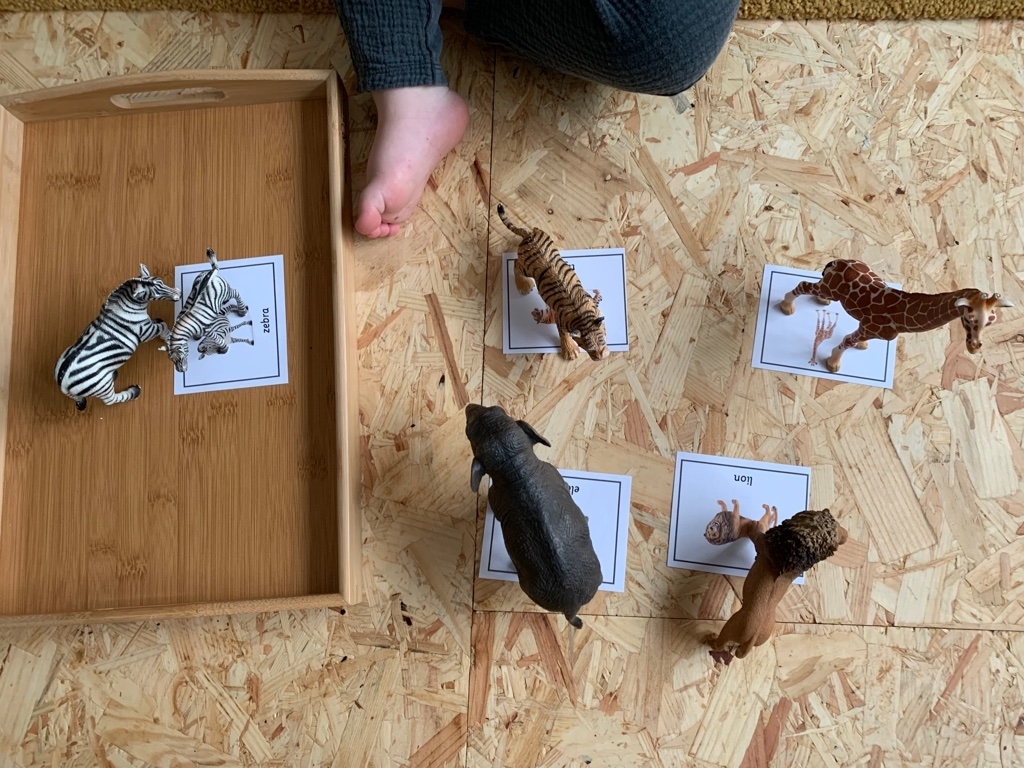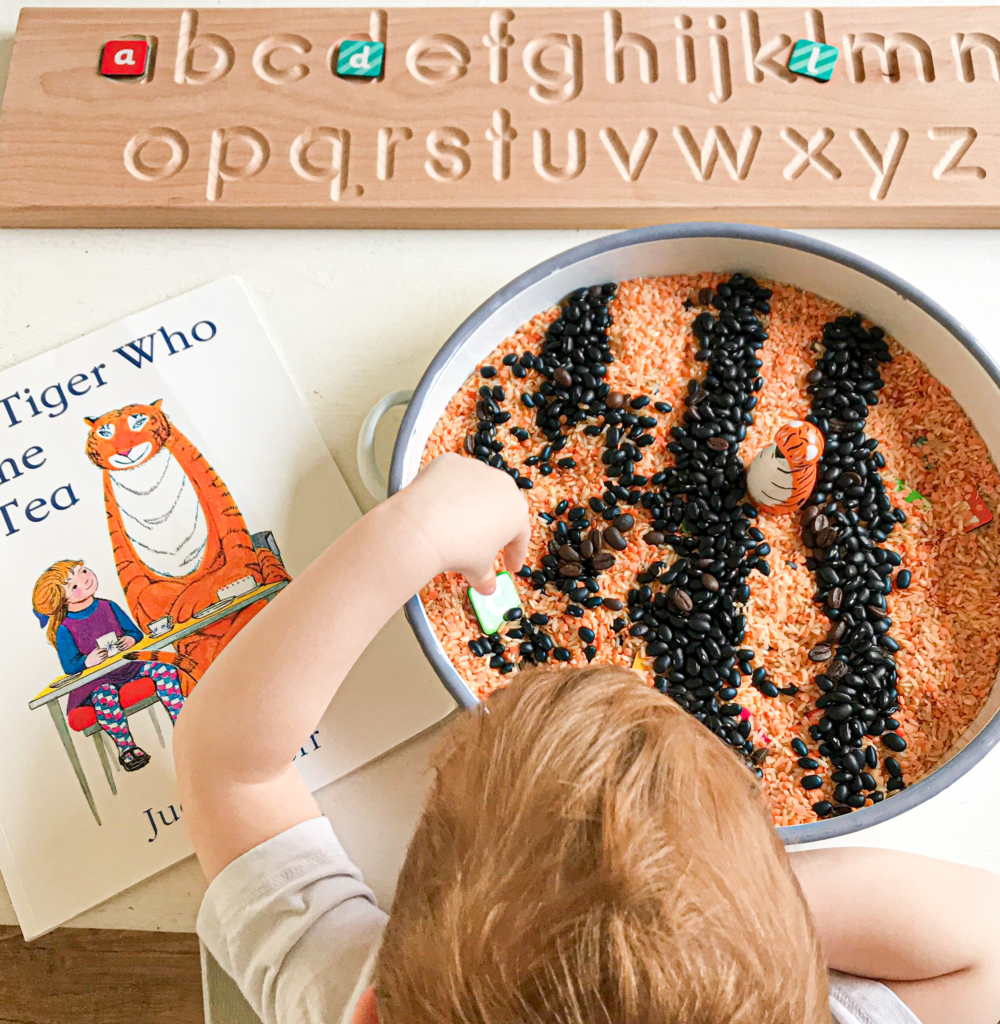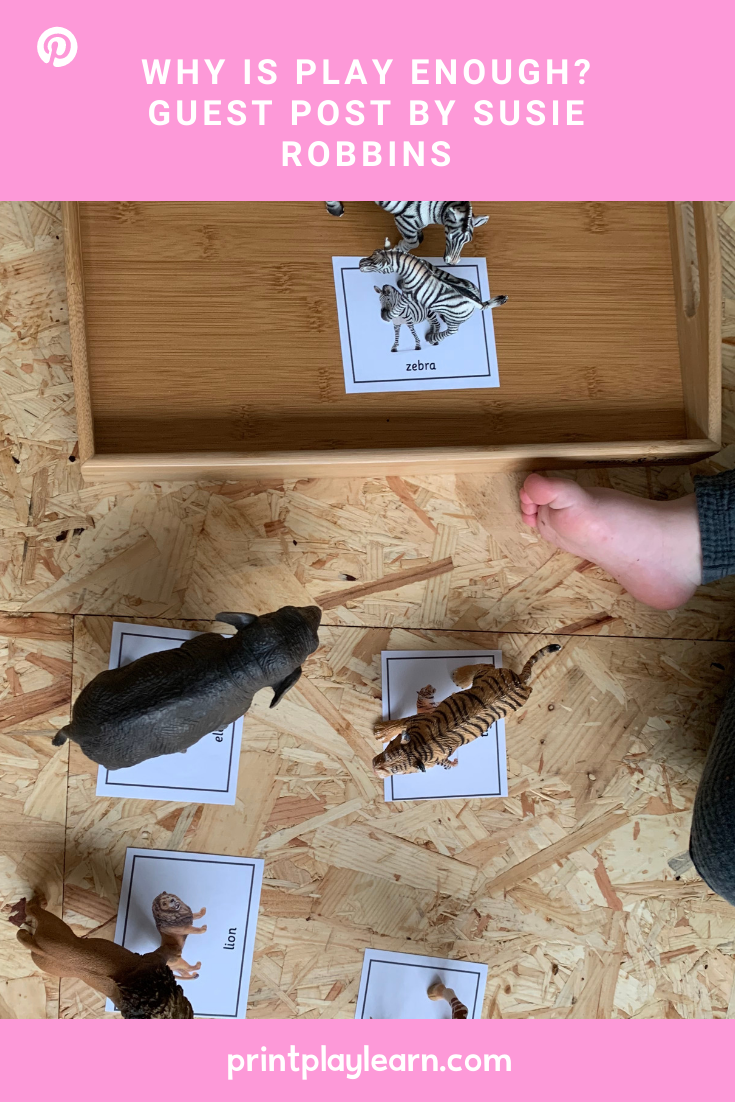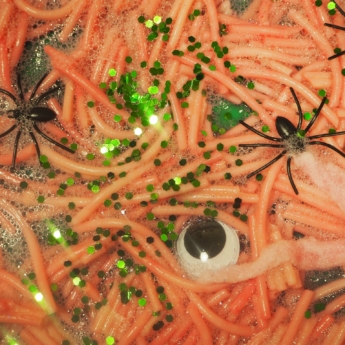As we are coming up to half term time again I think whatever happens after it we should take comfort that play is enough for children and Susie Robbins explains more on why this is important. Less worry, more play.
Play is Enough and here are the reasons why.
During the pandemic, I have strived to spread the message to parents that ‘playing is learning, play is enough’. At a time when parents across the globe have been expected to juggle impossibly incompatible tasks (working from home, parenting and home-schooling their children) I want them to take solace in the fact that by letting their children play, they are allowing them to learn in their most natural way.
Letting children play, instead of feeling the need to sit them at a table from 9am until 3pm working from text books and work sheets, is not neglecting their education, it is not shirking responsibility, it is not failing at parenting. So let’s be rid of that guilt, shall we? Good.
Of course, play is enough in any circumstances, not just during crisis! Children, especially young children, need to play. Play supports their developmental progress, it encourages speech and language, helps to develop empathy and manage relationships, it helps our children to make sense of their emotions, it aids problem solving and it builds resilience through trial and error.
Maria Montessori, founder of the Montessori Theory, is quoted to have said that “We discovered that education is not something which the teacher does, but that it is a natural process which develops spontaneously in the human being”.
Development and learning will occur naturally. Play supports this natural development and education steers its course. Most parents are not teachers and have had to fulfil this role under the most extreme circumstances, I want to reassure you that many Early Years Foundation Stage (EYFS) practitioners use the learning-through-play approach. They do so with the knowledge and experience that it is a valid and age-appropriate strategy.
Their skill is in knowing what to look for and being able to label the learning. For example, when children are playing outside on ride-on toys, what are they learning? They see that the children are learning how to make the vehicle move and stop (forces: momentum and friction), they are learning how to steer to avoid crashing (trajectories, distance, depth perception, perspective and angles), they are learning that moving their bodies makes them feel good (healthy living and healthy habits).
EYFS staff observe what happens if children can’t make the ride on move: do they call in their friends to lend a hand and push (cooperation, collaboration and team work), do they discuss the problem and investigate it together? (language and communication, hypothesising and evaluating results). Seemingly simple activities like riding from a to b in a Little Tykes car are jam-packed with learning.
Montessori also said “never help a child with a task at which he feels he can succeed”, this is especially true in play – children don’t need adult direction or interference for play to be effective, they often play at their best when it is entirely child-led and free-play.
So do not be afraid to take a step back, to let your child explore and immerse themselves in their play, do not be tempted to jump in with advice or corrections, let them learn through their own successes and mistakes, for as Montessori also said “what the hand does, the mind remembers”.
She advocates child-led play because when a child is interested and absorbed in an activity they will engage much more, their brains will already be tuned in and receptive. Interrupting a child who is fully engrossed in junk modelling, to bring them to a table to complete a worksheet on phonics is jarring. The two subjects and learning styles are too different and it takes time and a monumental effort for the child to switch between the two; it’s somewhat like being engrossed in a work spreadsheet and then being forced to do an obstacle course with your child. It is not a natural transition. We’ve all been there, with limited success!
For children, play is a pleasurable experience, when we feel pleasure our brain creates dopamine, the hormone and neuro-transmitter that makes us feel good. Dopamine also has a huge impact on our ability to learn, to focus and on our behaviour.
Play can happen anywhere: inside, outdoors, at school, at the park, in the car, in the bath, on the school run – it is not at all restrictive, unless we add restrictions (and sometimes we have to for health, safety and sanity!). It is most definitely in our best interests to use dopamine to our advantage, and that of our children too.
Let them play, play is learning, play is enough!
If you would like to find out more about Susie then check out her website Resolve to Play or follow her on Instagram.



